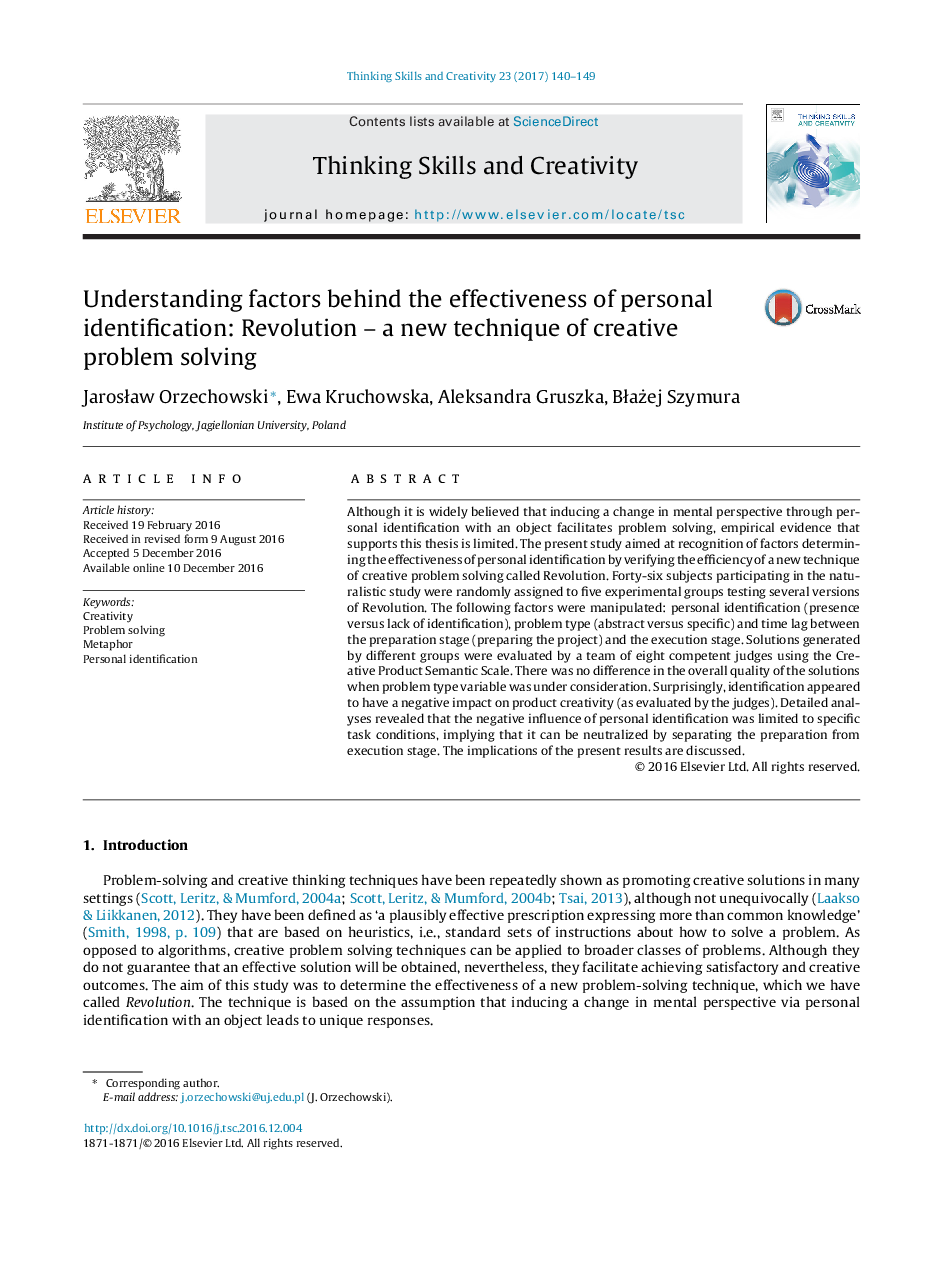| Article ID | Journal | Published Year | Pages | File Type |
|---|---|---|---|---|
| 4941835 | Thinking Skills and Creativity | 2017 | 10 Pages |
Abstract
Although it is widely believed that inducing a change in mental perspective through personal identification with an object facilitates problem solving, empirical evidence that supports this thesis is limited. The present study aimed at recognition of factors determining the effectiveness of personal identification by verifying the efficiency of a new technique of creative problem solving called Revolution. Forty-six subjects participating in the naturalistic study were randomly assigned to five experimental groups testing several versions of Revolution. The following factors were manipulated: personal identification (presence versus lack of identification), problem type (abstract versus specific) and time lag between the preparation stage (preparing the project) and the execution stage. Solutions generated by different groups were evaluated by a team of eight competent judges using the Creative Product Semantic Scale. There was no difference in the overall quality of the solutions when problem type variable was under consideration. Surprisingly, identification appeared to have a negative impact on product creativity (as evaluated by the judges). Detailed analyses revealed that the negative influence of personal identification was limited to specific task conditions, implying that it can be neutralized by separating the preparation from execution stage. The implications of the present results are discussed.
Related Topics
Social Sciences and Humanities
Psychology
Developmental and Educational Psychology
Authors
JarosÅaw Orzechowski, Ewa Kruchowska, Aleksandra Gruszka, BÅażej Szymura,
